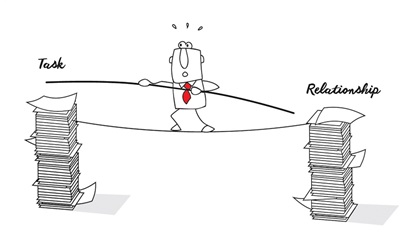Dealing with Inter-Generational Conflict

Jenny* recounted the tension she had experienced with her older supervisee, Aik Beng*. The incessant disrespectful acts from Aik Beng, such as his show of non-verbal disapproval of Jenny’s decisions, had pushed her to the edge. The situation became tense when Aik Beng started to challenge Jenny openly in front of other colleagues.
Siew Mui* had a new and young supervisor, Sandy*, who threw her weight around in the office. Sandy’s lack of sensitivity towards the older staff, and the impression she gave of being a know-it-all made Siew Mui feel unappreciated as a staff.
Anecdotes depicting hostility between younger supervisors and older supervisees, as in the cases stated above, are not uncommon. To examine intergenerational issues in this contemporary supervisory context, the Institute of Governance and Policy at the Civil Service College conducted a 2012 study on 450 public officers.
Twenty-six percent of the Baby Boomers/Traditionalists (BBT) respondents were once under the charge of Generation Y supervisors and one-third of these BBT officers faced challenges working with their younger heads. Some remarks by BBT respondents about their difficult Generation Y supervisors were:
“Micro-manager.”
“Don’t share the same opinions or views.”
“Inexperienced.”
“Do not know how to manage.”
“Cannot help to solve problems.”
On the other hand, one-third of Generation Y supervisors in the study had experience managing BBT officers and half of them shared that overseeing their older colleagues was no piece of cake either:
“They think they know better.”
“They insist on their views.”
“They think that experience counts more than anything else.”
“Older employees show less respect to younger supervisors.”
Though these intergenerational conflicts might not be prevalent in all organisations, they could create a negative work culture. How then can organisations and officers help to reduce intergenerational tensions at the workplace?
- Prepare young supervisors for leadership roles: Prevailing literature pointed out how younger supervisors might have the “paper qualifications” but lack the technical knowledge, experience and the ability to manage older employees. Leadership development programmes for young supervisors should include diversity topics, stereotype issues and skills to manage a multi-generational workforce.
- Provide intergenerational training at different levels: This can help to facilitate the understanding of generational differences and encourage older and younger officers to learn from one another.
- Encourage offline communication: Supervisors and officers should set aside time for face-to-face interaction instead of relying on emails as the main mode of communication. Avoid resolving conflicts over emails and instant messaging as that may lead to more misunderstandings.
- Appreciate each other’s strengths: Younger officers can tap on the technical knowledge and experience of older officers and seek their input before making decisions. Older officers can look to younger officers for ideas and fresh perspectives, and work with them to embrace new technologies at the workplace.
- Ensure fair human resources policies: Provide ample and equal career development and progression opportunities for both younger and older officers to reduce perceptions of inequality.
To help public officers learn more about managing intergenerational relations, the Civil Service College conducts the following courses:
- Leading a Multi-Generational Team
- Managing and Unleashing Gen Y’s Potential
For more information on the courses, please visit www.cscollege.gov.sg
*Not their actual names
- POSTED ON
Jul 24, 2013
- TEXT BY
Cindy Tan
Peter Chua, Institute of Governance and Policy, Civil Service College
-
Work Better
Reframing Tension as an Opportunity to Engage








